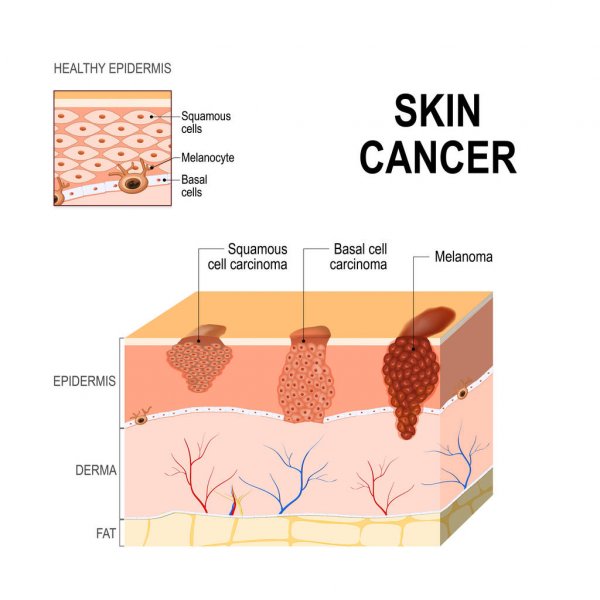Can Growth Factors In Skin Care Cause Cancer
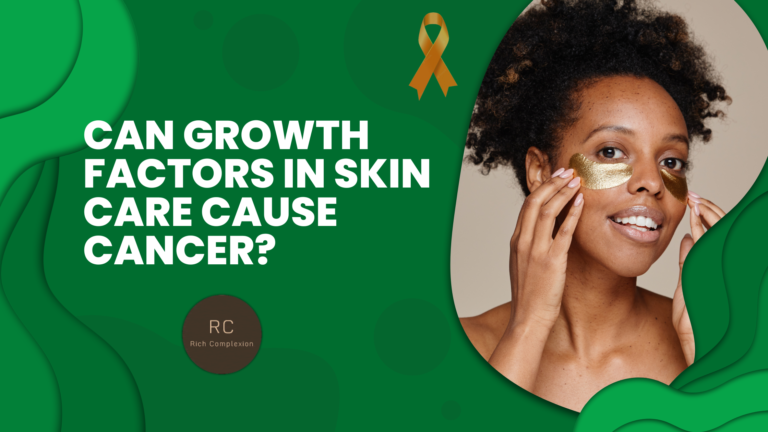
The beauty industry is constantly evolving, with promises of younger-looking skin driving the development of new and innovative ingredients. Among these, growth factors have garnered considerable attention for their potential to stimulate collagen production and cellular repair.
However, a shadow of concern looms over these seemingly miraculous compounds: can growth factors in skin care actually cause cancer? The answer is complex, fraught with scientific nuances, and demands a cautious approach.
The Growth Factor Question: Separating Fact from Fiction
This article delves into the science behind growth factors, exploring their mechanisms of action, the existing research on their safety, and the perspectives of dermatologists, oncologists, and regulatory bodies.
We aim to provide a balanced and informed perspective on whether the potential benefits of growth factors outweigh the hypothetical risks.
What Are Growth Factors, Exactly?
Growth factors are naturally occurring proteins that regulate cellular growth, proliferation, and differentiation.
In essence, they act as messengers, signaling cells to perform specific functions like producing collagen, repairing damaged tissue, and even forming new blood vessels.
In skin care, growth factors are typically derived from plant extracts, animal sources, or, increasingly, through recombinant biotechnology using microorganisms like bacteria.
How They Work (And Why That Raises Concerns)
The premise behind using growth factors in skin care is simple: apply these messengers to the skin, and they'll stimulate the cells to behave in a younger, healthier manner.
By binding to receptors on the surface of skin cells, growth factors trigger a cascade of intracellular events that lead to increased collagen and elastin production, improved skin texture, and reduced wrinkles.
However, this very mechanism is what raises concerns. Uncontrolled cellular growth and proliferation are hallmarks of cancer.
The Scientific Evidence: What Does the Research Say?
The crucial question is whether topically applied growth factors can contribute to the development or progression of cancerous cells. Existing research offers a mixed bag.
Some in vitro studies, using cell cultures in laboratory settings, have shown that certain growth factors can stimulate the proliferation of cancer cells. However, these studies are far removed from the reality of applying these substances to intact human skin.
Other studies, particularly those involving animal models, have yielded conflicting results. Some have shown no adverse effects, while others have suggested a potential link between high concentrations of certain growth factors and tumor growth.
The Human Factor: Limited Clinical Trials
The most significant gap in our knowledge lies in the limited number of large-scale, long-term clinical trials involving humans.
While some studies have evaluated the efficacy and safety of growth factor-containing skin care products over shorter periods (typically a few months), these studies are often too small and too short to detect any potential long-term cancer risks.
Moreover, many of these studies are funded by the companies that manufacture and market these products, raising potential concerns about bias. More independent research is needed.
The Dermatologist's Perspective: Weighing the Risks and Benefits
Dermatologists are often at the forefront of recommending and using growth factor-containing skin care products. Their perspective is crucial in understanding the current state of the debate.
Dr. Anya Sharma, a board-certified dermatologist, explains: "While the theoretical risk of growth factors contributing to cancer is a valid concern, the concentrations used in most skin care products are relatively low."
She adds, "Furthermore, the skin acts as a barrier, limiting the absorption of these molecules into the deeper tissues. However, it's important for patients to be aware of the potential risks and to discuss their concerns with their dermatologist."
The Oncologist's Caution: A Different Perspective
Oncologists, who specialize in the treatment of cancer, often express a more cautious view regarding the use of growth factors in skin care.
Dr. Ben Carter, an oncologist at a leading cancer center, states: "Given the lack of definitive long-term safety data, I generally advise my patients, particularly those with a personal or family history of cancer, to avoid products containing growth factors."
He emphasizes the need for a precautionary approach, highlighting the potential for even low concentrations of growth factors to stimulate the growth of pre-existing, undetected cancerous cells.
The Role of Regulatory Agencies: What Are the Guidelines?
Regulatory agencies like the FDA (Food and Drug Administration) in the United States play a crucial role in ensuring the safety of cosmetic products.
Currently, the FDA does not have specific regulations regarding the use of growth factors in skin care. These products are generally classified as cosmetics, which are subject to less stringent regulations than drugs.
However, the FDA does have the authority to take action against products that are found to be unsafe or misbranded. The lack of specific regulations highlights the need for greater scrutiny and potentially stricter guidelines in the future.
Navigating the Market: Making Informed Choices
Consumers are often bombarded with marketing claims and can find it difficult to navigate the complex world of skin care ingredients.
When considering products containing growth factors, it's essential to do your research, read labels carefully, and consult with a dermatologist.
Look for products from reputable brands that provide transparent information about the source and concentration of growth factors used. Consider your own personal risk factors, such as family history of cancer, and weigh the potential benefits against the hypothetical risks.
The Future of Growth Factors in Skin Care
Despite the existing concerns, research into growth factors and their potential applications in skin care continues to advance.
Scientists are exploring new ways to deliver growth factors more effectively and safely, potentially through encapsulation techniques or by using synthetic peptides that mimic the activity of growth factors without the same potential risks.
As research progresses and more data becomes available, we may gain a clearer understanding of the true risks and benefits of these fascinating compounds.
Conclusion: A Cautious Approach is Warranted
The question of whether growth factors in skin care can cause cancer remains largely unanswered. While the scientific evidence is inconclusive, the potential for these substances to stimulate cellular growth warrants a cautious approach.
Until more long-term safety data becomes available, consumers should be aware of the potential risks and make informed choices based on their individual circumstances and risk factors.
Transparency, responsible marketing, and continued research are essential to ensuring that the pursuit of youthful skin does not come at the expense of our health.







:max_bytes(150000):strip_icc()/what-is-skin-cancer-3010808_final-743e4e72b4164bedacb08eedbd9c52c7.png)

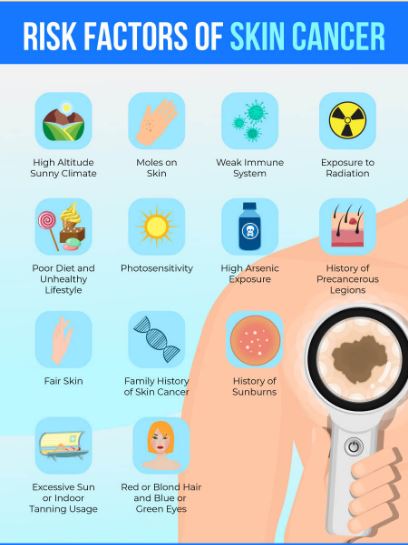

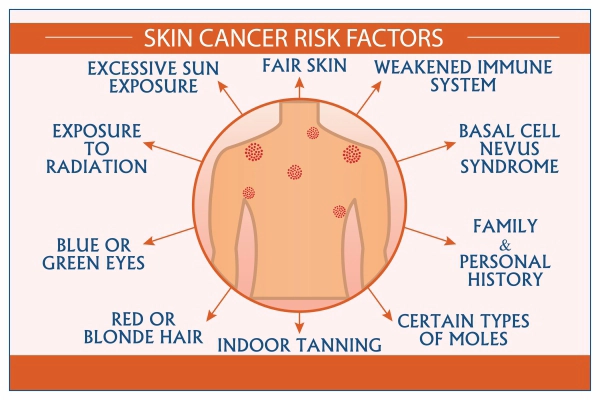
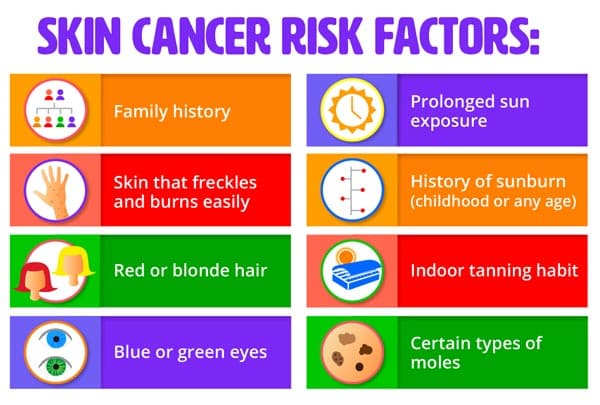
:max_bytes(150000):strip_icc()/skin-cancer-causes2-5afedc988e1b6e003602ab43.png)

